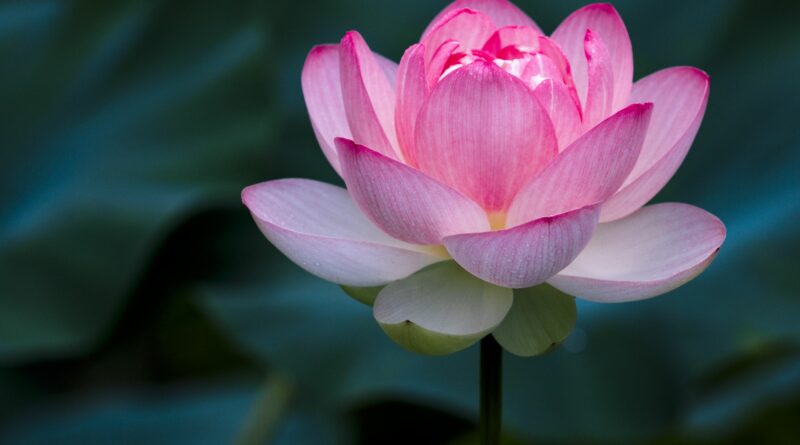41-50
MAIN CONTENT
41-50
41. Nice, but…
At present there are a lot of meditators who get enthusiastic about new teachers or new meditation centers. Just as lottery enthusiasts get excited about monks who forecast lottery numbers, or amulet enthusiasts get excited about monks who make powerful amulets, in the same way, vipassanā enthusiasts get excited about vipassanā teachers. A lot of these people, when taken with a particular teacher, will praise that teacher to others and try to persuade them to share their opinion and respect for the teacher. And especially at present, there are famous speakers who tape their Dhamma talks and sell them all over the country. One woman once brought many tapes of a famous speaker’s talks for Luang Pu to listen to, but he didn’t listen to them. One reason was that he had never had a radio or tape player since the day he was born. Or supposing that he had had one, he wouldn’t have known how to turn it on. Later, someone brought a tape player and played many of these tapes for Luang Pu to listen to. Afterwards, she asked him what he thought. He said,
“Nice. He has a beautiful way of expressing himself, and an abundance of words, but I couldn’t find any substance to them. Each time you listen, you should be able to get the flavor of study, practice, and attainment. That’s when there’s substance.”
42. Meditators who are uncertain
At present, many people who are interested in meditation practice are extremely confused and doubtful about the correct way to practice. This is especially true of people just beginning to get interested, because meditation teachers often give conflicting advice on how to practice. What’s worse, instead of explaining things in a fair and objective way, these teachers seem reluctant to admit that other teachers or methods of practice might also be correct. There are not a few who show actual disdain for other methods.
Because many people with these sorts of doubts would often come to ask Luang Pu’s advice, I frequently heard him explain things in this way:
“When you start practicing meditation, you can begin with any method at all, because they all lead to the same results. The reason there are so many methods is because people have different tendencies. This is why there have to be different images to focus on or words to repeat—such as “buddho” or “arahang”—as means of giving the mind a point around which to gather and settle down as the first step. When the mind has gathered and is still, the meditation word will fall away on its own, and that’s where every method falls into the same track, with the same flavor. In other words, it has discernment as its surpassing state, and release as its essence.”
43. When dwelling, dwell above
Everyone who came to pay respect to Luang Pu would say the same thing: Even though he was almost 100 years old, his complexion was bright and his health strong. Even those of us who lived near him all along rarely saw his face darken or look exhausted or get furrowed in displeasure or pain. His normal state was to be quiet and cheerful at all times. He had few illnesses and was always in a good mood, never excited about events or affected by praise or blame.
Once, in the midst of a gathering of elder meditation monks who were conversing about how to characterize the normal state of mind of those who live above suffering, Luang Pu said,
“Not worrying, not being attached: That’s the mental dwelling of those who practice.”
44. Looking for new teachers
People practicing the Dhamma at present are of two sorts. The first are those who, when they learn the principles of the practice or receive advice from a teacher and get on the path, are intent on trying to follow that path to the utmost of their ability. The other sort are those who—even though they’ve received good advice from their teacher and have learned the correct principles of the practice—aren’t sincerely intent. Their efforts are lax. At the same time, they like to go out looking for other teachers at other centers. Wherever they hear there’s a good center, there they go. Meditators of this sort are many.
Luang Pu once advised his students,
“When you go to a lot of centers and study with a lot of teachers, your practice won’t get results, for when you go to a lot of centers, it’s as if you go back to the beginning over and over again. You don’t gain any sure principles in your practice. Sometimes you get uncertain and bewildered. Your mind isn’t solid. Your practice degenerates and doesn’t progress.”
45. Holding on vs. putting aside
Students and practitioners of the Dhamma are of two sorts. The first sort are those who genuinely study and practice to gain release from suffering. The second are those who study and practice to brag about their accomplishments and to pass their days in arguments, believing that memorizing a lot of texts or being able to quote a lot of teachers is a sign of their importance. Many times, when people of this second sort came to see Luang Pu, instead of asking his advice on how to practice, they would spray out their knowledge and ideas for him to hear in great detail. Still, he was always able to sit and listen to them. In fact, when they had finished, he would add one more comment to theirs:
“Those who are obsessed with scriptures and teachers won’t be able to gain release from suffering. But still, those who want to gain release from suffering do have to depend on scriptures and teachers.”
46. When the mind resists growing still
In practicing concentration, there‘s no way everyone will get results at the same speed. Some people get fast results, others get slow results. There are even those who never seem to gain a taste of stillness at all. Still, they shouldn’t get discouraged. The act of making an effort in the area of the heart is, in itself, a higher form of merit and skill than the act of giving gifts or observing the precepts. A large number of Luang Pu’s students would ask him, “I’ve been trying to practice concentration for a long time, but my mind has never been still. It keeps wandering off outside. Is there another way I might be able to practice?”
Luang Pu would sometimes recommend this other method:
“When the mind isn’t still, you can at least make sure it doesn’t wander off far. Use your mindfulness to stay mindful solely of the body. Look to see it as inconstant, stressful, and not-self. Develop the perception of its being unattractive, with nothing of any substance to it at all. When the mind sees clearly in this way, it will give rise to a sense of dismay, disenchantment, and dispassion. This, too, can cut through the clinging-aggregates.”
47. The genuine basis of the Dhamma
There’s one thing that meditators love to talk about, and that’s, “What do you see when you sit in meditation? What appears when you meditate?” Or else they complain that they’ve been sitting in meditation for a long time and yet nothing has appeared for them to see. Or else they talk about seeing this thing or that all the time. This makes some people misunderstand things, thinking that when you meditate you get to see what you want to see.
Luang Pu would warn these people that this sort of aspiration is all wrong, for the purpose of meditation is to enter into the genuine basis of the Dhamma.
“The genuine basis of the Dhamma is the mind, so focus on watching the mind. Get so that you understand your own mind poignantly. When you understand your mind poignantly, you’ve got the basis of the Dhamma right there.”
48. A warning not to be heedless
To ward off any heedlessness or carelessness in the behavior of his monks and novices, Luang Pu would choose a poignant way of reprimanding them:
“Lay people work hard at their living with lots of difficulties so that they can gain the material things, the food and the money they need to support their families, their children and grandchildren. No matter how tired or exhausted they are, they have to keep struggling. At the same time, they want to gain merit, which is why they sacrifice some of their belongings to make merit. They get up early in the morning to fix good food to put in our alms bowls. Before they put the food in our bowls, they lift it above their heads and make a wish. When they’ve finished putting the food in the bowl, they back away, squat down, and raise their hands in respect once more. They do this because they want merit from supporting our practice.
“And what merit is there in our practice that we can give to them? Have you behaved yourself in a way that you deserve to receive their food and eat it?”
49. Sometimes he came down hard
Ajaan Samret had ordained from when he was a child until he was almost 60 years old. He had been a meditation teacher, strict in his practice, good in his reputation, and respected by many people. But he didn’t make it all the way. His state of mind deteriorated because he fell in love with the daughter of one of his supporters. So he came to take his leave of Luang Pu in order to disrobe and get married.
Everyone was shocked at this news and didn’t believe it could possibly be true because, looking at his practice, they had assumed he would stay in the contemplative life to the end of his days. If the news were true, it would be a major blow to the meditative community. For this reason, fellow elders and his students tried everything they could to get him to change his mind and not disrobe. In particular, Luang Pu called for him and tried to talk him out of his plans, but to no effect. Finally, Ajaan Samret said to him, “I can’t stay on. Every time I sit and meditate, I see her face floating right in front of me.”
Luang Pu responded in a loud voice,
“That’s because you aren’t meditating on your own mind. You’re meditating on her rear, so of course you’re going to keep seeing her rear. Get out of here. Feel free to go wherever you want.”



